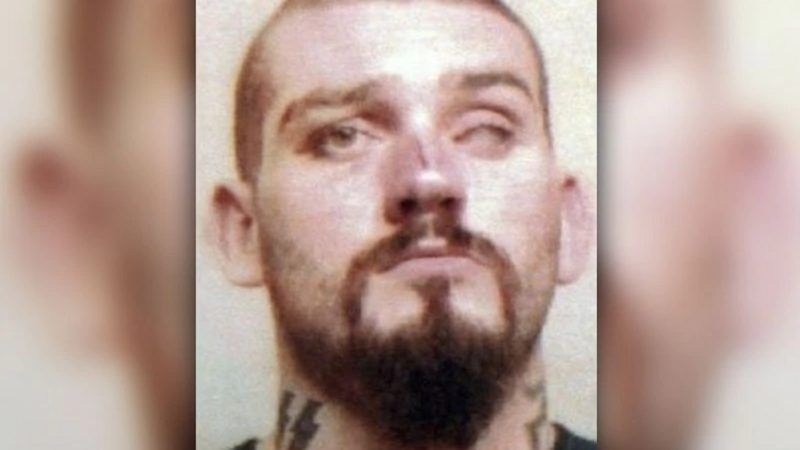Justice Department Executes First Federal Prisoner in Nearly 2 Decades
A quick scramble to end a man’s life, despite objections by attorneys and even the relatives of his victims

The United States government carried out its first execution in 17 years this morning, killing Daniel Davis Lee, 47, by lethal injection.
Lee was scheduled to have been executed Monday in Terre Haute, Indiana, but legal maneuvers slowed the Department of Justice's efforts. First, a judge temporarily delayed the execution because relatives of Lee's victims sued since they were afraid to travel to attend due to fears of catching COVID-19.
A panel of judges for the U.S. Court of Appeals for the 7th Circuit lifted that injunction on Sunday, but on Monday, U.S. District Judge Tanya S. Chutkan ordered a new delay while Lee (and three other men scheduled for execution in the coming days) fought the use of pentobarbital as the sole drug for lethal injection, claiming the drug causes pain during the process of stopping the prisoner's heart.
That delay was enough to miss Monday's scheduled 4 p.m. execution. But the Department of Justice continued to fight, asking the Supreme Court to intervene, and in the early morning hours, the Court ruled in their favor, lifting the injunction. According to the Associated Press, Lee was declared dead at 8:07 a.m. this morning. His final words were "You're killing an innocent man."
Four justices—Elena Kagan, Stephen Breyer, Ruth Bader Ginsburg, and Sonia Sotomayor—dissented from the majority ruling lifting the injunction. In a signed dissent (the majority decision is unsigned), Sotomayor wrote, "Once again, the Court has chosen to grant an emergency application from the Government for extraordinary relief. … The dangers of that practice are particularly severe here, where the grant of the Government's emergency application inflicts the most irreparable of harms without the deliberation such an action warrants."
Ruth Friedman, Lee's attorney, wrote that as soon as the Supreme Court issued its decision, Justice Department officials immediately swung into action in the middle of the night. She writes that Lee still had multiple motions pending, and the Department of Justice rushed to execute him without informing her or letting her be present:
"It is shameful that the government saw fit to carry out this execution during a pandemic. It is shameful that the government saw fit to carry out this execution when counsel for Danny Lee could not be present with him, and when the judges in his case and even the family of his victims urged against it. And it is beyond shameful that the government, in the end, carried out this execution in haste, in the middle of the night, while the country was sleeping. We hope that upon awakening, the country will be as outraged as we are."
It's also not clear whether the Department of Justice actually had a valid execution warrant because the warrant they had obtained had expired at midnight.
Lee was convicted and sentenced to death for murdering a family of three (including an 8-year-old girl) in 1996 as part of a plan to steal money and guns from them to establish a "whites-only" nation. The surviving relatives of Lee's victims opposed Lee's execution. They wanted him to be sentenced to life in prison, matching the sentence of the man who allegedly masterminded the crime.
The federal government hasn't executed a prisoner since 2003, and the trend toward executing prisoners has been declining for the past two decades nationally. Last summer, Attorney General William Barr announced plans to resurrect federal executions, specifically targeting men on death row convicted of murdering children.
Lee is just the first. There are two others scheduled for this week. Wesley Ira Purkey is scheduled for execution tomorrow (though it is currently on hold as courts consider legal claims about the quality of Purkey's defense) and Dustin Lee Honken is scheduled to die on Friday. Another man, Keith Dwayne Nelson, is scheduled for execution in August.


Show Comments (87)